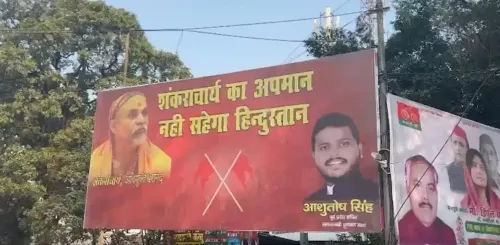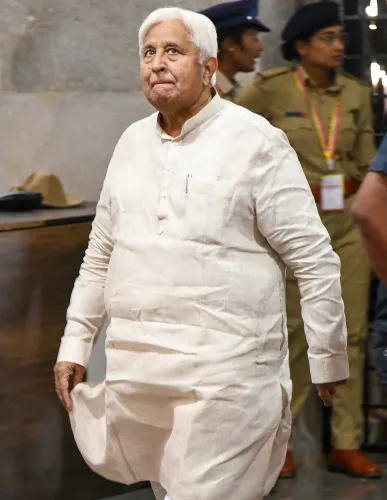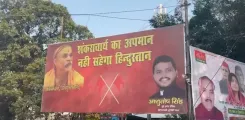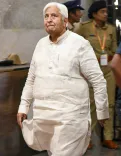Is Jamiat Ulema Taking Legal Action Against the Film on Kanhaiya Lal Murder Case?
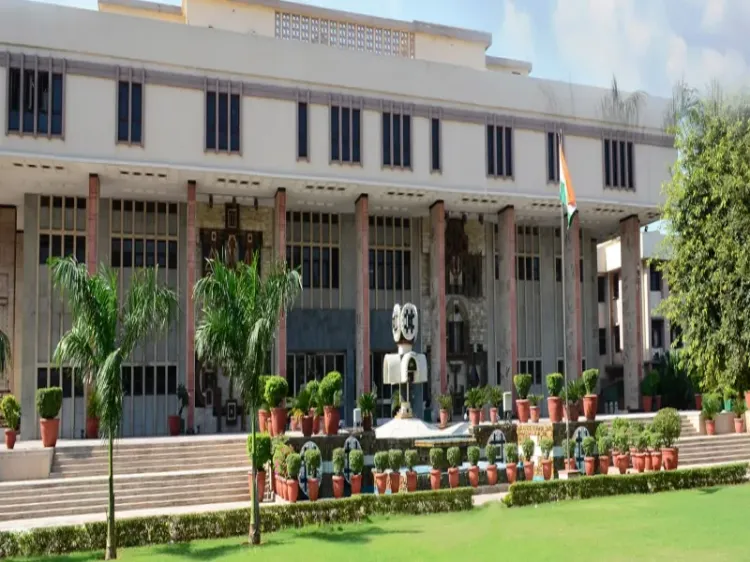
Synopsis
Key Takeaways
- Jamiat Ulema-i-Hind is challenging a film release over potential communal disharmony.
- The film “Udaipur Files” depicts the controversial murder of Kanhaiya Lal.
- The trailer has been criticized for inflammatory content.
- The case raises questions about freedom of expression versus social responsibility.
- The outcome could set legal precedents for similar cases in the future.
New Delhi, July 5 (NationPress) Maulana Arshad Madani, the head of the Islamic clerical organization Jamiat Ulema-i-Hind, has initiated a public interest litigation (PIL) at the Delhi High Court seeking to block the release of the film “Udaipur Files”.
The film, which is set to debut globally on July 11, portrays the actual events surrounding the Kanhaiya Lal murder case.
In June 2022, Kanhaiya Lal, a tailor from Udaipur, Rajasthan, was viciously killed by Mohammad Riyaz Attari and Ghaus Mohammad by slitting his throat.
The PIL claims that the trailer, which was launched on June 26 on YouTube, contains dialogues and scenes that could rekindle communal tensions reminiscent of recent events, thus posing a significant risk to communal harmony.
“The trailer unequivocally indicates the film’s intent, portraying an entire community in a biased light, infringing upon their right to dignity,” the petition states. It further notes that the trailer makes reference to the “Gyanvapi Masjid”, a currently contentious issue before both the Varanasi District Court and the Supreme Court.
Additionally, the film allegedly highlights the controversial remarks made by politician Nupur Sharma, which sparked communal unrest and contributed to the tragic murder of Kanhaiya Lal.
The petition emphasizes that the trailer, and by extension the movie, reiterates inflammatory content (comments against Prophet Mohammad PBUH) that led to multiple FIRs against Nupur Sharma.
“The trailer is filled with dialogues and elements that clearly constitute hate speech targeted at a specific community. The language, imagery, and narrative employed are not only incendiary but also intentionally communal,” the plea asserts.
The petition also disputes the certification provided by the Central Board of Film Certification (CBFC), arguing that it violates Section 5B of the Cinematograph Act, 1952 along with the associated guidelines.
Seeking to annul the CBFC’s certification, the plea contends that the trailer fosters a divisive and inflammatory narrative that vilifies an entire religious community, warning that the release of “Udaipur Files” could exacerbate communal discord and threaten public order, ultimately undermining the fabric of religious harmony in the nation.


